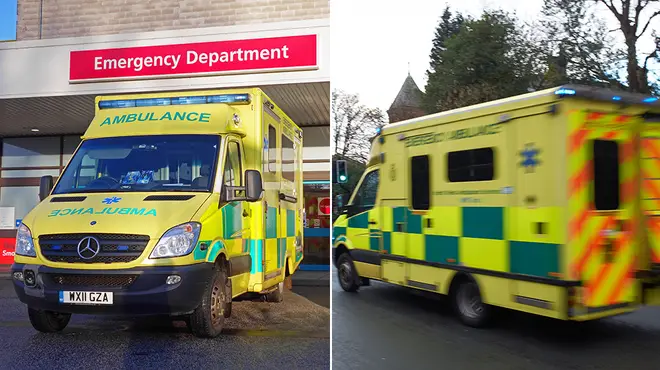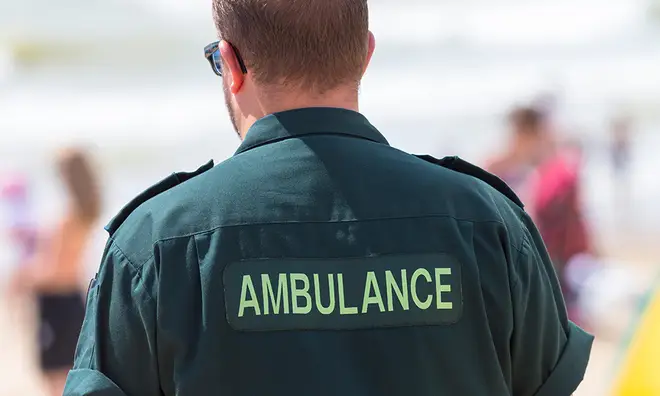
James O'Brien 10am - 1pm
11 January 2023, 10:14

What is a category 1 and 2 ambulance call? The list of emergencies ambulances will be sent to during strike days are limited as drivers, paramedics and callers fight for more pay.
Ambulance services across England and Wales are continuing their strike action on Wednesday 11th January and Monday 23rd January which will see thousands of workers take action in their fight for more pay.
With as many as 10 out of 11 service trusts taking part in the walkouts, there will be severe disruption up and down the country as ambulance drivers, workers, paramedics and call handlers all take part.
The head of the London ambulance service has urged people only to dial 999 if they are in danger of dying or suffering a serious injury, as NHS bosses have warned the impact could be worse than that of the strikes before Christmas.
Read more: Plans to curb workers' rights to strike are 'poisonous' says former Labour leader Neil Kinnock
Read more: NHS must do whatever it takes to tackle crisis, says Shapps - including cabins in car parks
So what should you do if you have an emergency on an ambulance strike day? Here's the latest:

If you are in need of an ambulance, it's advised to still call as there will still be staff answering emergency calls and sending out ambulances to life-threatening and clinically urgent situations.
The ambulance service has broken down calls into four categories, 1, 2, 3 and 4, which will rank your situation in terms of severity.
Different areas of the country will be impacted differently so it's important you still call in an emergency. Each service will also be striking for different hours.
The Chief Executive of the London Ambulance Service has said: "It is still really, really busy in the NHS and hospitals are really, really full so I would just ask the public to be really helpful again tomorrow and only phone us if they have a life and limb-threatening emergency.
“And if they have another urgent healthcare need please use 111 either on the phone or online.”

Ambulance workers strike across the country as part of GMB union industrial action
These services are still available as doctors, GPs and nurses are not on strike on the same days although, it's likely they will be busier than normal so please expect delays.
Pharmacies are also available for help and advice.
If it is an emergency, you are still advised to call 999.